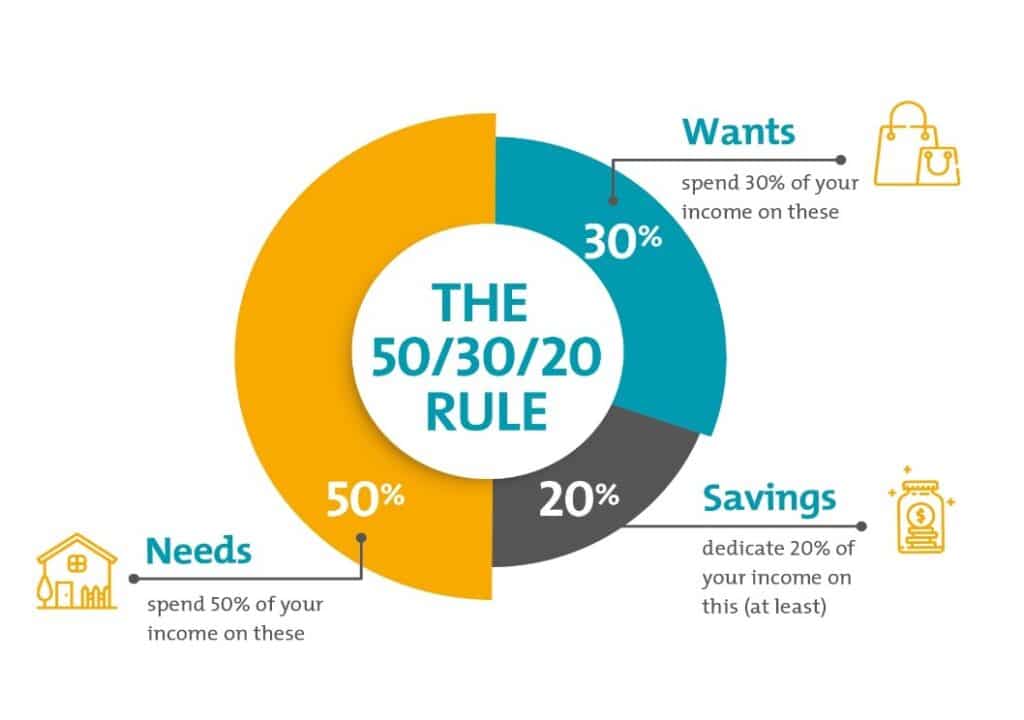As a young professional, building a strong financial foundation early in your career can set you up for long-term success. Here are some personal finance tips that can help you manage your money wisely, build wealth, and achieve your financial goals.

Create a Budget and Track Your Spending
- Why it’s important: Establishing a budget helps you understand where your money is going each month, ensuring that you’re living within your means and can allocate funds to your savings and investment goals.
- How to do it: Use budgeting tools or apps like Mint, YNAB (You Need A Budget), or even a simple spreadsheet. Start by categorizing your expenses (e.g., rent, utilities, food, entertainment) and make sure you’re spending less than you earn.
Build an Emergency Fund
- Why it’s important: Life is unpredictable, and having an emergency fund can protect you from unexpected expenses (e.g., medical bills, car repairs, job loss).
- How to do it: Aim to save at least 3-6 months’ worth of living expenses. Start small if needed and gradually increase your savings. Consider keeping this fund in a high-yield savings account to earn some interest while maintaining liquidity.

Avoid High-Interest Debt
- Why it’s important: High-interest debt, especially credit card debt, can quickly spiral out of control and become a major obstacle to achieving financial goals.
- How to do it: Pay off high-interest debts as quickly as possible. Consider the debt snowball method (paying off smaller debts first) or debt avalanche (tackling high-interest debts first). Avoid adding to your credit card balance by paying it off in full each month
Start Saving for Retirement Early
- Why it’s important: The earlier you start saving for retirement, the more time your money has to grow through compound interest. Even small contributions can make a significant impact over time.
- How to do it: Take advantage of employer-sponsored retirement plans, like a 401(k), and contribute enough to get any employer match (free money!). If your employer offers a Roth 401(k), consider using it for tax-free growth. Additionally, open an IRA (Individual Retirement Account) if you’re eligible.

Invest Early and Regularly
- Why it’s important: Investing is one of the best ways to build wealth over the long term. The earlier you start investing, the more potential for your money to grow.
- How to do it: Consider low-cost index funds or ETFs that track the overall market. Use dollar-cost averaging, which involves investing a fixed amount regularly (e.g., monthly), regardless of market conditions. This strategy helps reduce the impact of market volatility.
Live Below Your Means
- Why it’s important: While it may be tempting to indulge in luxury purchases when you start earning more money, living below your means allows you to save, invest, and build a more secure future.
- How to do it: Practice mindful spending. Avoid lifestyle inflation (increasing spending as your income rises). Prioritize your financial goals over instant gratification.
Understand and Build Your Credit
- Why it’s important: A good credit score is essential for getting favorable loan rates, renting an apartment, or even landing certain jobs. It’s also vital for securing low-interest rates on mortgages, auto loans, and credit cards.
- How to do it: Pay your bills on time, keep credit card balances low (ideally under 30% of your limit), and check your credit report regularly for any errors. Consider using tools like Credit Karma to track your score and improve it.
Plan for Major Expenses and Goals
- Why it’s important: Being proactive about saving for big-ticket items, like buying a car, purchasing a home, or going on vacation, ensures you’re financially prepared and reduces the need for loans or debt.
- How to do it: Set specific financial goals for the next 1, 3, and 5 years, then break them down into monthly or yearly savings targets. Use savings accounts or investment accounts dedicated to specific goals.

Seek Professional Financial Advice When Needed
- Why it’s important: As your financial situation becomes more complex, it can be helpful to seek advice from a financial planner or advisor. They can help you optimize your investment strategy, reduce taxes, and plan for retirement.
- How to do it: Look for certified financial planners (CFPs) who are fiduciaries, meaning they are legally required to act in your best interest. Many advisors offer free consultations or charge hourly rates for specific advice.
Focus on Increasing Your Income
- Why it’s important: While budgeting and saving are essential, increasing your income can provide more flexibility in reaching your financial goals faster.
- How to do it: Focus on career advancement through networking, acquiring new skills, or seeking promotions. You can also explore side hustles or freelance opportunities to generate extra income.
Protect Your Income with Insurance
- Why it’s important: Insurance can help protect you from significant financial loss in case of accidents, illnesses, or other emergencies.
- How to do it: Make sure you have health insurance, and if you’re a freelancer or self-employed, consider disability insurance. You might also want to explore renter’s insurance and life insurance depending on your situation.
Review and Adjust Your Finances Regularly
- Why it’s important: Financial goals and situations can change over time, so it’s important to review your budget, savings, and investments periodically to ensure you’re on track.
- How to do it: Set aside time every few months to review your financial progress. Reassess your goals, track your net worth, and adjust your savings and investment strategies as needed.
Continue Learning About Personal Finance
- Why it’s important: Financial literacy is a lifelong journey. The more you know, the better equipped you’ll be to make informed decisions and adapt to changes in the financial landscape.
- How to do it: Read books, listen to podcasts, or take courses on personal finance and investing. Some great resources include books like “The Millionaire Next Door” and podcasts like “The Dave Ramsey Show” or “BiggerPockets” (for real estate).
For young professionals, financial success depends on the ability to budget, save, invest early, and live within your means. By setting clear financial goals, building an emergency fund, and learning about investing and credit, you can set yourself up for long-term wealth and financial security. Take action now, and over time, you’ll reap the rewards of consistent, disciplined financial habits.








